‘Putin>>>>>NATO’
On a Trump-administration official and the state of the American Right

The character of my politics is not the most important issue in America; in fact, it may be the least. But now and then I am asked something like this:
“Why are you ‘divorced’ from the Republican Party? Why can’t you just accept Trump and this current stage of conservatism? Why can’t you adapt like the Heritage Foundation, the Claremont Institute, and so many other organizations? If Marco Rubio can adapt—why can’t you?”
In the summer of 2016, I received a friendly e-mail from a very prominent conservative, warning me that I was “marginalizing” myself by not hopping aboard the “Trump train.” I thanked him and also said, in effect: “I am well acquainted with life on the margins!”
Anyone interested in the nature of my political views, and how I arrived at them, can consult an essay I wrote last fall. It was published on Election Day: “A Political Testimony: The life of a conservative from Reagan to Trump.”
This brings me to some news that was circulated on Friday: President Trump has chosen Darren Beattie to lead the U.S. Institute of Peace. Mr. Beattie is already an undersecretary of state—for public diplomacy and public affairs. He operates at a high level of our foreign-policy apparatus. He is a face, and voice, of the United States to the world.
He is also an intellectual and academic: a mathematician and political theorist.
As the above-linked news report says, Beattie served in the first Trump administration—but was fired “for speaking at a conference attended by white nationalists.” The second Trump administration is less fastidious, shall we say, than the first.
Here is a taste of Mr. Beattie’s views:
I am a supporter of NATO; I do not think Putin is greater than NATO—to say nothing of five times greater. I think that Putin is one of the most malevolent forces of our time. A murderer, an invader, a tyrant.
Beattie also prefers the Chinese Communist Party to NATO:
I believe—to use language I have already used—that the Chinese Communist Party is one of the most malevolent forces on earth. This has been a theme of my journalism for 30 years. (Exactly 30 years, in fact.)
Return to Putin:
Have a little more:
Lloyd Austin, as you recall, is the retired U.S. Army general who was our secretary of defense.
To read more about Beattie and his relation to Putin’s Russia, see this article from the Telegraph, published last month.
Reverence for Putin is strong on the populist right. Here is another administration official, tweeting during the “interregnum,” between the Trump terms:
What is “globohomo” and why should it, or they, be butchered? Apparently, the answers are clear to the likes of Paul Ingrassia.
He is the president’s liaison to the Department of Homeland Security. He is also the president’s nominee to be U.S. special counsel.
Back to Darren Beattie, the undersecretary of state for public diplomacy and public affairs, and the president of the U.S. Institute of Peace. As regular readers know, I have written often about the Uyghurs and their fate. The Uyghurs are a Turkic minority in northwestern China against whom the Chinese Communist Party is committing genocide. That is the judgment of the U.S. State Department itself (under Mike Pompeo, who led the department for most of Trump’s first term). I last wrote about the Uyghurs earlier this month for The Dispatch, here.
Now, Beattie:
Some more:
These sentiments are as nutty as they are malicious. Anyone familiar with what the Uyghurs have endured will be revolted.
Another taste of Beattie’s thought can be had in this statement:
A final statement:
Many of the people who hold themselves up to be exemplary “conservatives” and “patriots” sound exactly like—exactly like—the forthrightly anti-American leftists I knew when I was young.
I do not like to single out people—Beattie, Ingrassia, et al. I would rather write about types. But I have written about these two men because they represent a type, a type that is riding high on the American right today.
Well, who are my “types”? Various types, I hope. Near the top of that essay published on Election Day, I cite a range of people who influenced me as I was coming of age. (Again, that essay is here.) Their conservatism, or their political outlook, was very different from what prevails now. But I thought these people had something valuable to offer—valuable and true.
I’d like to end by saying, “Here I stand,” but that sounds melodramatic. Instead, I’ll say: Thank you and see you soon.




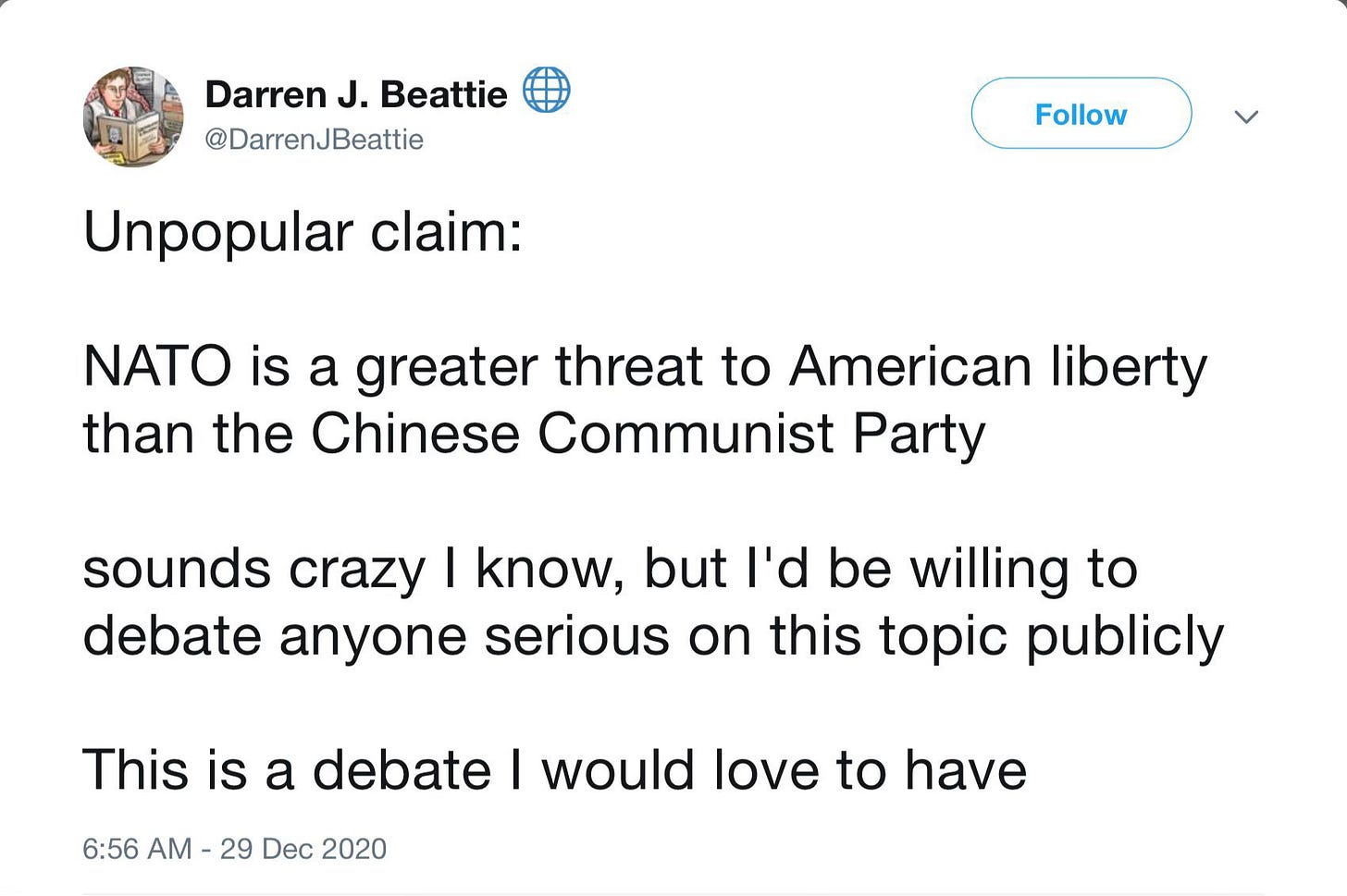
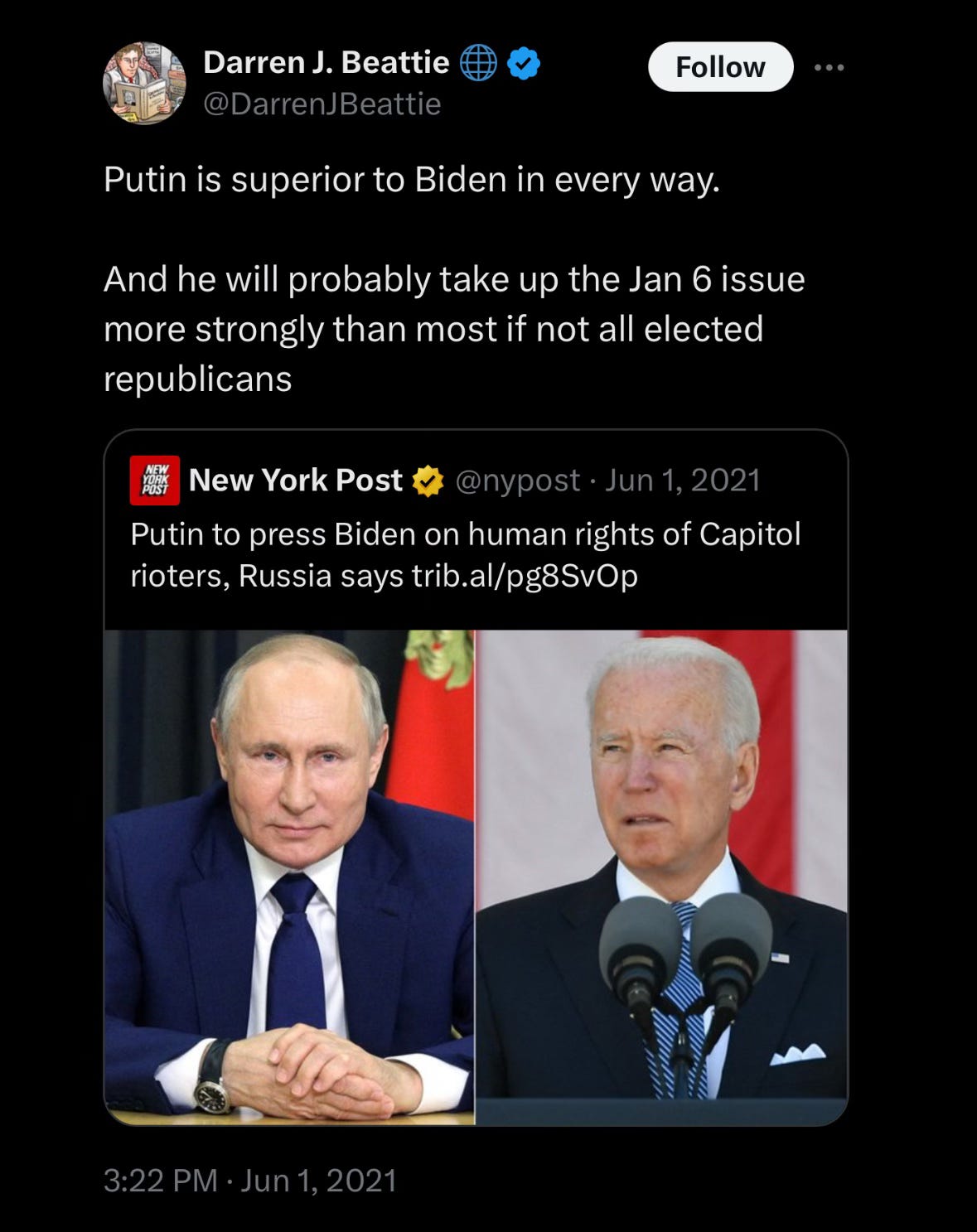

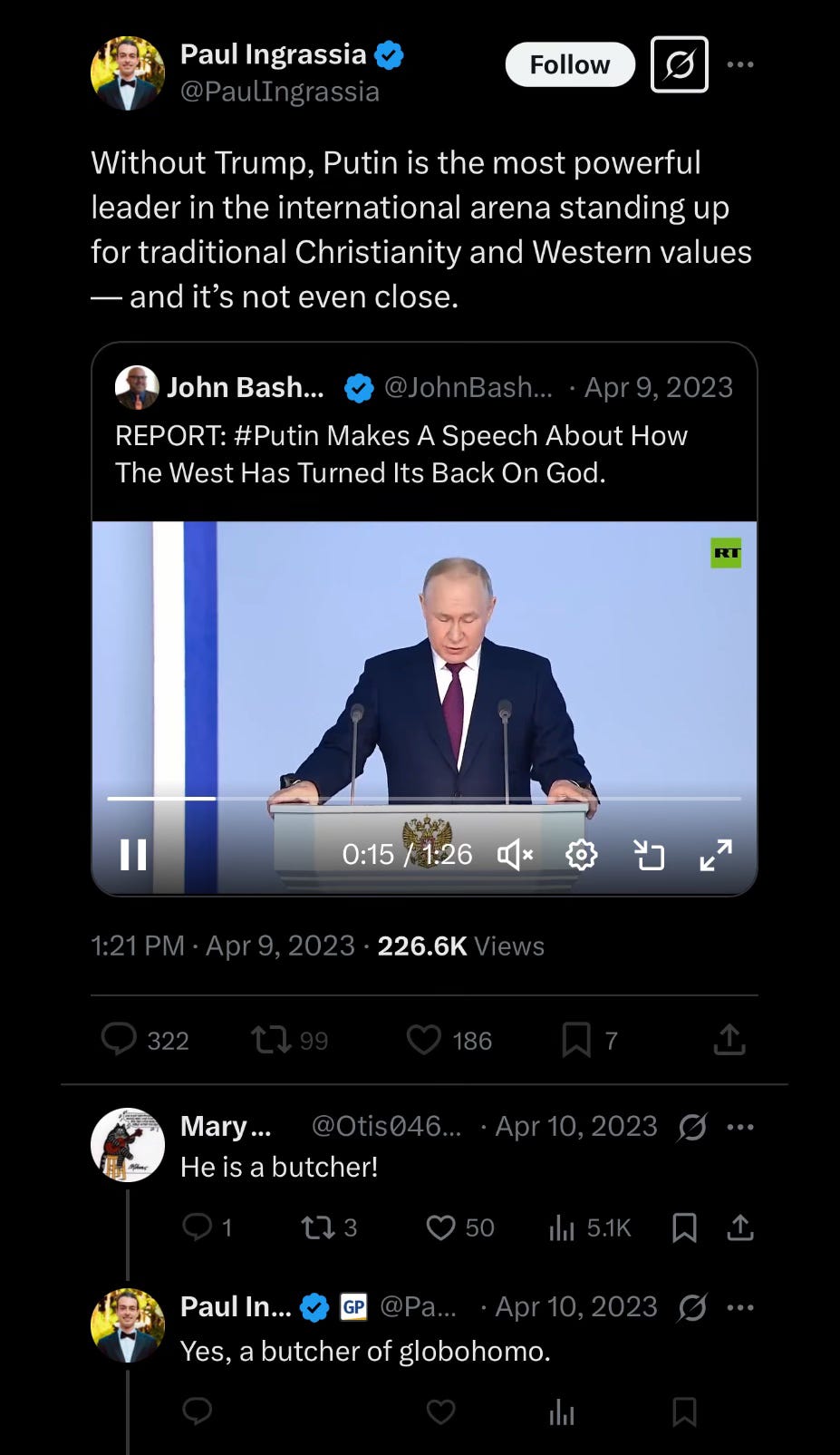
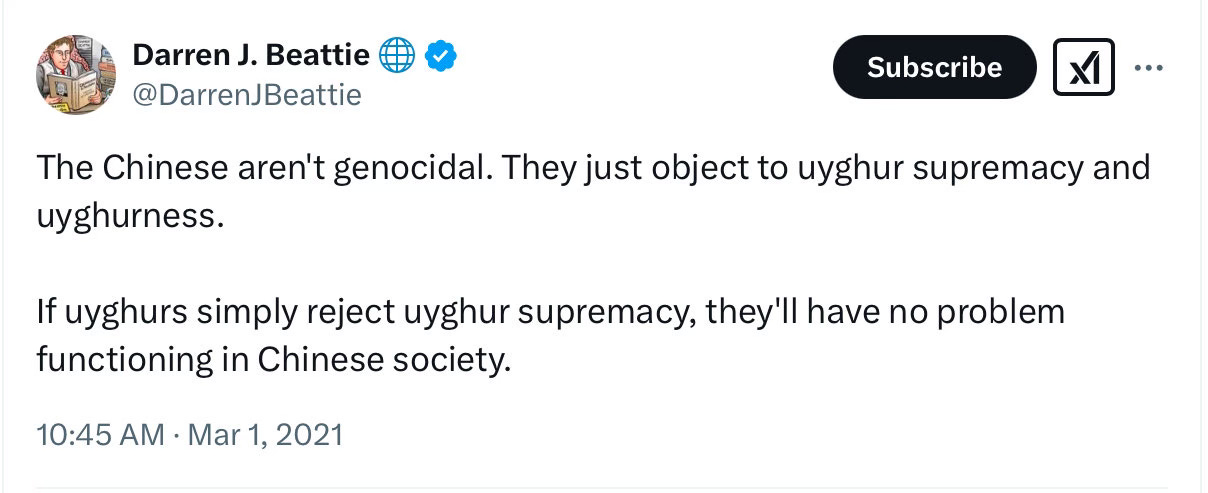
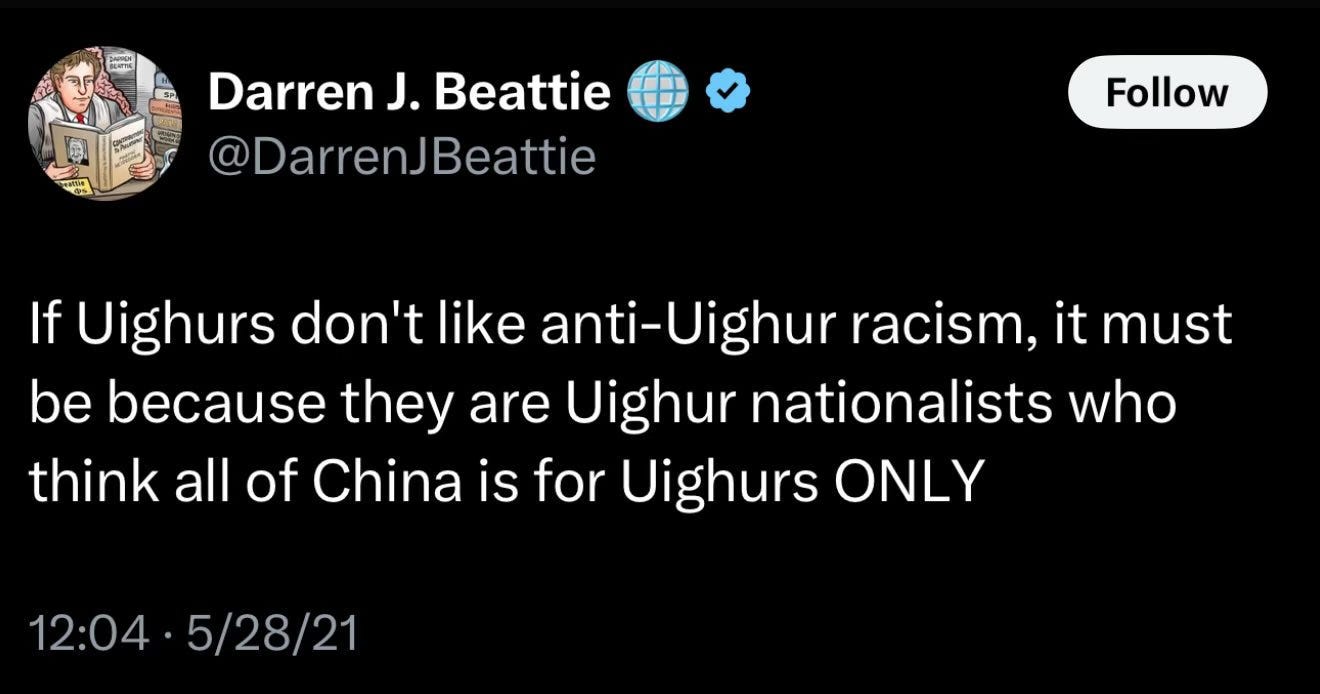
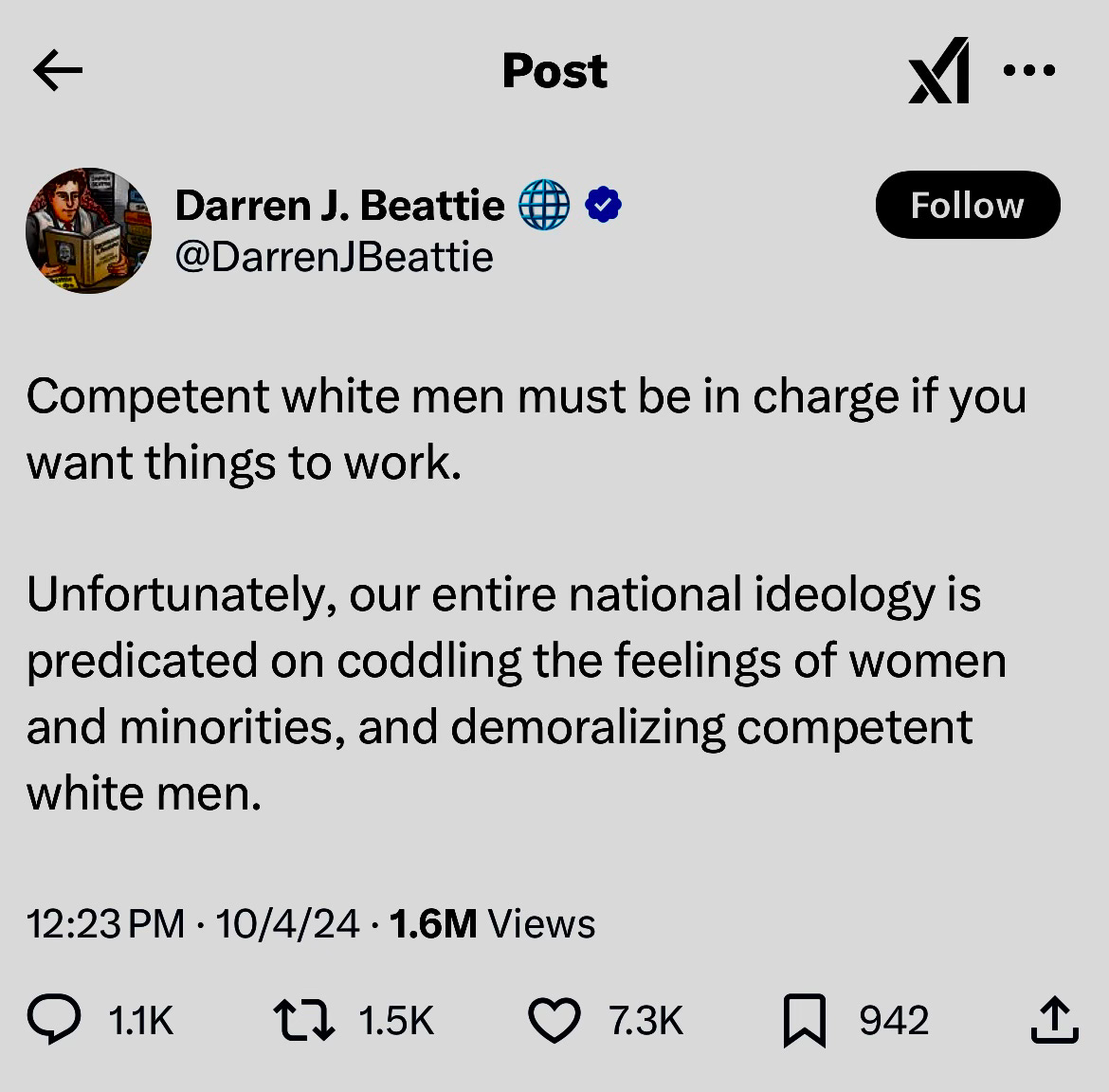
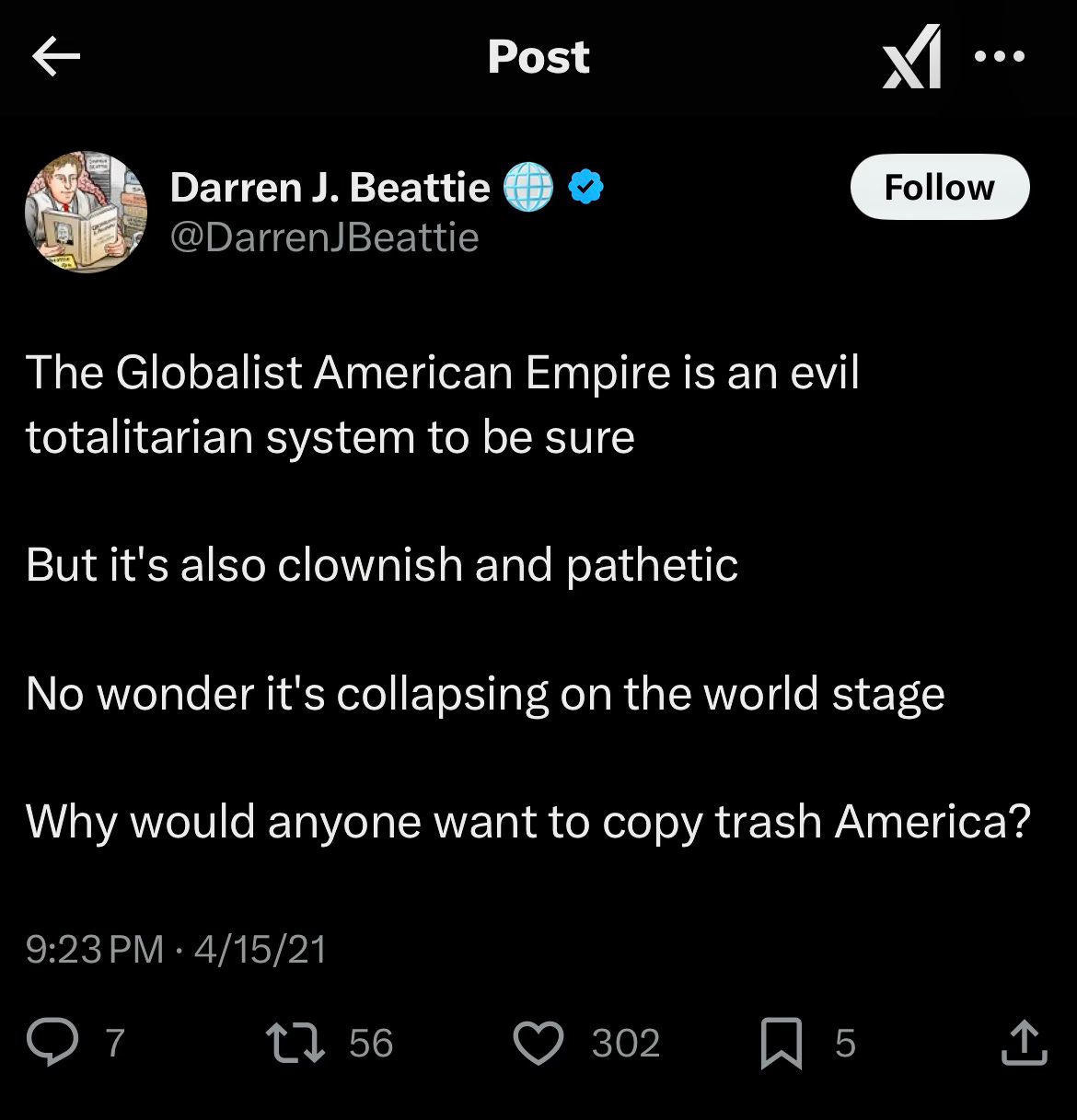
Golly. I feel worse knowing these people exist.
Way to respond Jay...good for you.
I wonder if the person who asked you that understands now.